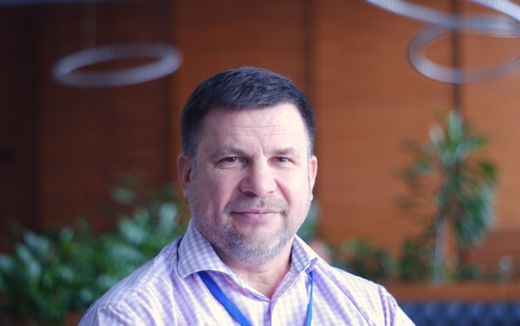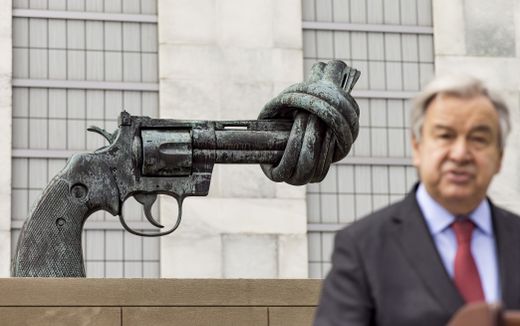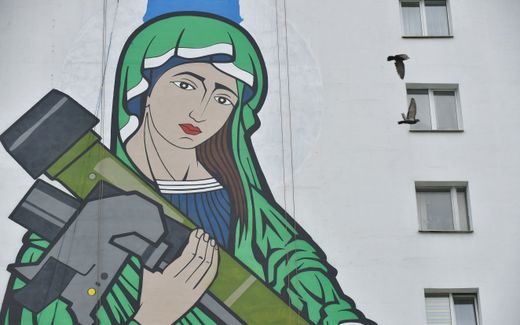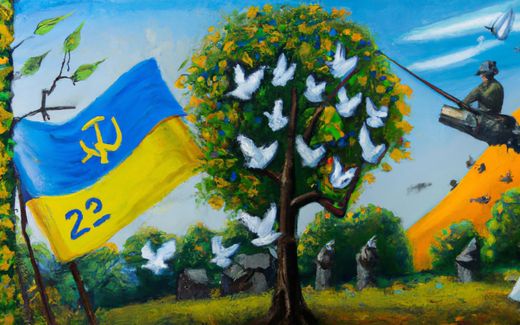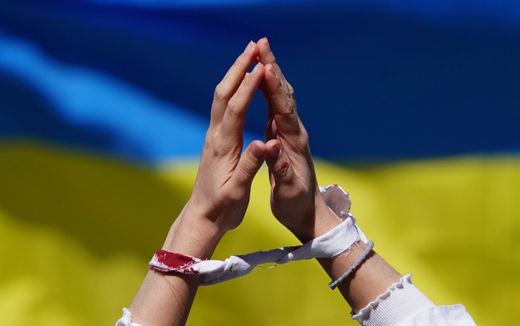Evert’s comment: Twenty years after the war in Iraq, I still wait for a historian to clear the sky
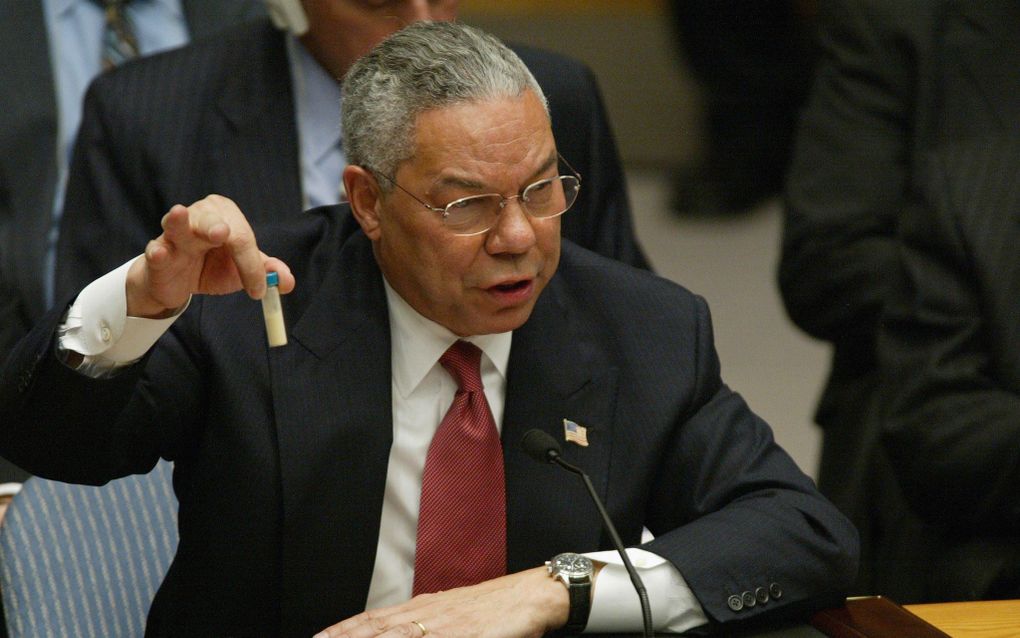
US Secretary Colin Powell showed the dangerous anthrax in the UN Security Council. At the moment, many were convinced. But twenty years later, it is different. Photo EPA, Timothy A. Clary
Opinion
This week, it is twenty years after the invasion of Iraq. The ground for the war was that Saddam Hussein had weapons of mass destruction. But that is still the big mystery: did he have those weapons? And why were they never found?
At the time, I was a foreign news reporter for the Christian daily Reformatorisch Dagblad in Holland. And I even had the privilege of having the portfolio with “international justice”. So, from the terrorist attacks on September 11th 2001, onwards, I have followed the attempts of the US government in the UN Security Council to get a mandate for measures against Iraq. This country was seen as part of the “axis of evil”, in the words of US President George W. Bush. Terrorists would just move from Afghanistan to Iraq and find a safe haven there.
Hitler
The story was clear: Iraq had WMD (weapons of mass destruction). Almost everybody was sure about that. And in the past, Saddam had used some of them against his own people. He was known as the greatest crook after Adolf Hitler. So, why would he not do such a thing again?
Under international law, a country with WMD is obliged to give access to inspections. From the early 90s onwards, those inspections were let into the country but, at the same time, hindered at a large scale. I once spoke to one of these former UN experts. When he returned to his hotel room, he discovered that other people had been there while he was away. And they left strange material there, like photos of dead children, to intimidate.

In the late 90s, Iraq blocked access to inspectors. And, of course, that was very suspicious. Because of this, one group of international scholars said that serious consequences were allowed if Saddam did not allow inspectors. The then foreign minister of the Netherlands, Jaap de Hoop Scheffer, once followed this line in a parliamentary debate.
Another group of internationalists said: Any military action is only allowed in the case of self-defence, so you have to prove that an attack by Iraq is a real danger.
This debate went on for months. The UN Security Council produced resolutions that forced Iraq to accept new inspectors. And they came.
During these months, I published a series about “just war”. Before that, I had never given much attention to that, although I had studied political science.
Anti-Americanism
In the meantime, we saw something else that I have never fully understood: a very strong anti-Americanism here in Europe. That did not only come from France. Especially higher educated and forward-thinking people had reservations about the US style. Yes, they liberated Europe in 1945. Yes, they solved the war in Yugoslavia after many failures from Europe. But still, there was little love for the Yankees from Europe (especially in Western Europe, where I live).
Obviously, we know there has been animosity between Paris and Washington. France never accepted that the US led the Western world after the Second World War.
But this time, the anti-Americanism was much deeper. Also, in Belgium, Luxembourg and Germany, there was a deep mistrust in the US government.

Usually, Republican US presidents are not popular in Europe. Ronald Reagan is now respected in his home country by people from both parties, but at the time, he was not trusted in Europe. His successor George H. W. Bush, was more lucky, but the son George W. Bush again was spoken about with much disdain. And, of course, Donald Trump did not get much respect from the Old World.
Many political leaders were openly enthusiastic when Barack Obama was chosen. But, interestingly enough, when this man asked for troops for Afghanistan, the atmosphere changed.
Cynicism
With George W. Bush, there was an extra factor: he presented himself as an Evangelical Christian. For us, being a Christian newspaper, that raised high expectations. This was a man who deserved the benefit of the doubt.
Was there doubt, then? Oh, yes, the whole thing was cloudy. Many doubted whether there were WMD at all in Iraq.
Doubt leads to cynicism. Especially journalists can be very cynical. They see so much insincerity in people who are so full of themselves. They just don’t trust anybody at all any longer. But usually, they do not really (try to) understand; they are just negative. But it must be said; cynical people often turn out to be right afterwards.
I am journalist enough to have my part of cynicism as well. But my greatest weakness is that I am too trusting. So, my intuition said that I had to trust the assumption in UN resolutions that there were indeed WMD in Iraq and that the country was obliged to facilitate inspectors.
Conspiracy
It was strange for us that the WMDs were not discovered. I remember listening to the US State Secretary Colin Powell at the NATO Headquarters in Brussels a few weeks after the invasion that he expected the WMD to be “found soon”. But that never happened. What went wrong?
Even after twenty years, I cannot tell you. Many people say the whole case was a complot from the beginning. President Bush had constructed a lie together with the British Prime Minister Tony Blair.
I have never believed such a thing. Assistants constantly surround Bush and Blair; it is (almost) impossible for these two to concoct anything together. And the idea that all the associates were involved in such a conspiracy, you really have to be very trusting to take that. In turn, I am too cynical to believe that. Sooner or later, one of these employees would have sold that story to CNN or The New York Times. In one moment, this would have made you the “single honest man in both London and Washington”.

But what about the doubt in the highest circles? Well, in a democratic government, there is always policy debate. Be sure, in all European capitals are officials today who doubt sending jet fighters to Ukraine. Is that a reason to block this?
Having said this, it seems clear that people in the US government have deliberately exaggerated the information they received from the intelligence agents. They have said there were programs for WMD and nuclear weapons, although the intel did not support that. All this, of course, is very concerning.
Unsatisfied
Twenty years later, we don’t know much more. The WMD have never been found. And the country is messier than it was under Saddam. I think it is fair to conclude that the operation in Iraq was a blatant failure.
For the rest, it seems to be forgotten. It strikes me that not many (Christian) media write about this either. History will show how things really were. But until then, I remain unsatisfied.
Evert van Vlastuin (1972) has been working as a journalist from the early 90s.

He has interviewed several Nobel Peace Price winners as the former South African president F. W. de Klerk and two from Northern Ireland, John Hume and David Trimble.
From 2001, he worked as a foreign news reporter for the Dutch Reformed Daily. Since 2021, he works as managing editor for the start-up CNE.news.
Respond to Evert by e-mail.
Related Articles


